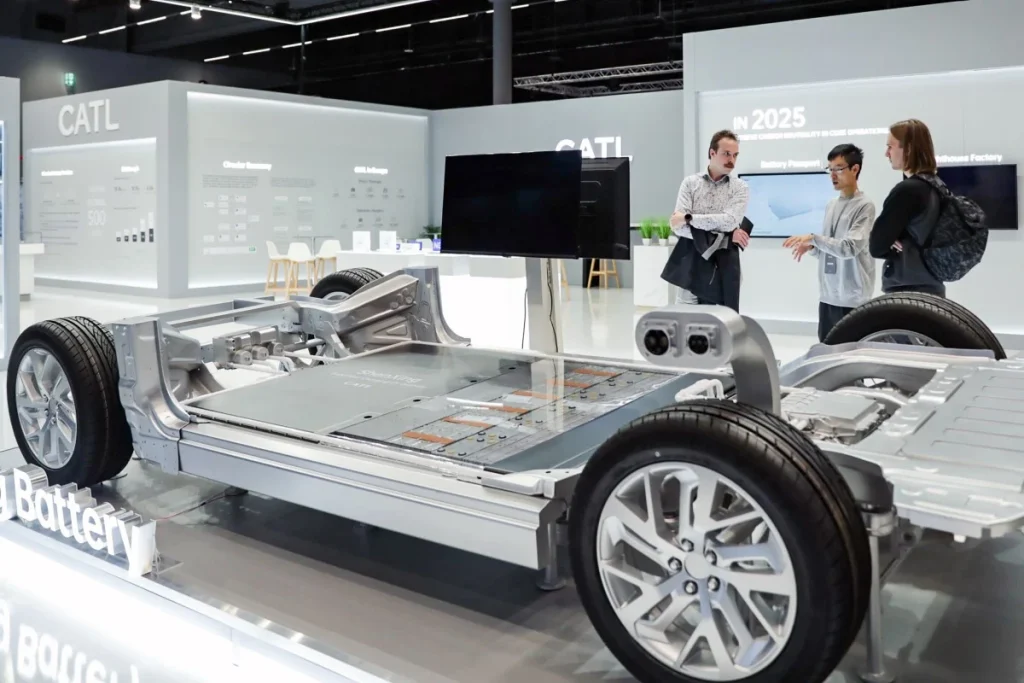In a detailed 20-month investigation, the innovation performance of 44 Chinese firms across critical technologies such as nuclear power, semiconductors, artificial intelligence (AI), electric vehicles (EVs), and materials science was scrutinized.
The findings indicate a potential shift in technological supremacy, with China emerging as a formidable contender to the US.
The study, conducted by the Information Technology and Innovation Foundation (ITIF), a Washington-based think tank, was presented at a recent Capitol Hill event.
Analysts emphasized the need for urgent action by US politicians and policymakers to address the challenges posed by Chinese innovations.

According to Stephen Ezell from ITIF, “While the Chinese innovation system is not without flaws, it is significantly stronger than previously understood.”
Although China hasn’t taken a definitive lead in all areas, it has surged ahead in specific fields and is expected to either match or surpass Western firms in several others within a decade.
China’s performance is particularly notable in nuclear power, EVs, and battery technologies.
The country is 10 to 15 years ahead of the US in deploying fourth-generation nuclear reactors at scale.
Indeed, China has built more nuclear reactors in the past decade than the US has in the last 30 years, leading projections that it will surpass the US in nuclear power generation by 2030.
In the automotive sector, China’s growth has been phenomenal. From manufacturing a mere 5,200 cars in 1985, the nation is now expected to produce 26.8 million cars this year, accounting for 21 percent of the global market share.
This is anticipated to increase to 30 percent by the decade’s end. The country currently manufactures 62 percent of the world’s electric vehicles and 77 percent of EV batteries.
While China is catching up rapidly in biopharmaceuticals, it still trails behind American and Western leaders.
However, from 2002 to 2019, China’s share of global value added in this industry has quadrupled to nearly 25 percent.
In robotics, although Chinese companies aren’t as innovative as their American, South Korean, or Japanese counterparts, China deployed more industrial robots last year than the rest of the world combined.
The semiconductor sector presents a mixed picture. China is approximately two to five years behind global leaders, with Huawei Technologies lagging three years in producing advanced chips.
Despite severe US sanctions cutting off Huawei’s access to key chip supplies, the company launched a new smartphone last year featuring a domestically produced advanced semiconductor, surprising many in Washington.
Ongoing US export controls aim to protect American tech superiority, including recent measures against quantum computing and advanced chipmaking tools.
American firms have also adapted, creating low-end versions of superior chips for the Chinese market.
However, China continues to pose competition, with companies like Huawei challenging major US players such as Apple in the smartphone arena.
Rick Switzer, formerly of the US State Department, underscored that China is advancing not by stealing technology but through hard work and innovation.
This is evident in the automotive sector, where Chinese EVs are not only cheaper but also more innovative, posing a significant challenge to companies like Tesla.
The US response has been robust. President Joe Biden recently imposed 100 percent tariffs on Chinese EVs and aims for the US to produce EV batteries free of Chinese input by 2030.
Collaboration between US and Chinese researchers remains high, although many Chinese nationals return home after studying in the US, boosting China’s innovation ecosystem.
As Emily Jin from the data-intelligence platform Datenna notes, China’s ideological environment is less contested, providing strong support for its industrial policy and tech advancements.
US congressman John Moolenaar emphasized the importance of export and capital controls in maintaining US technological leadership.
The findings highlight the imperative for the US to invest in its innovation capabilities while implementing strategic measures to manage the rapid advancements seen in China.
